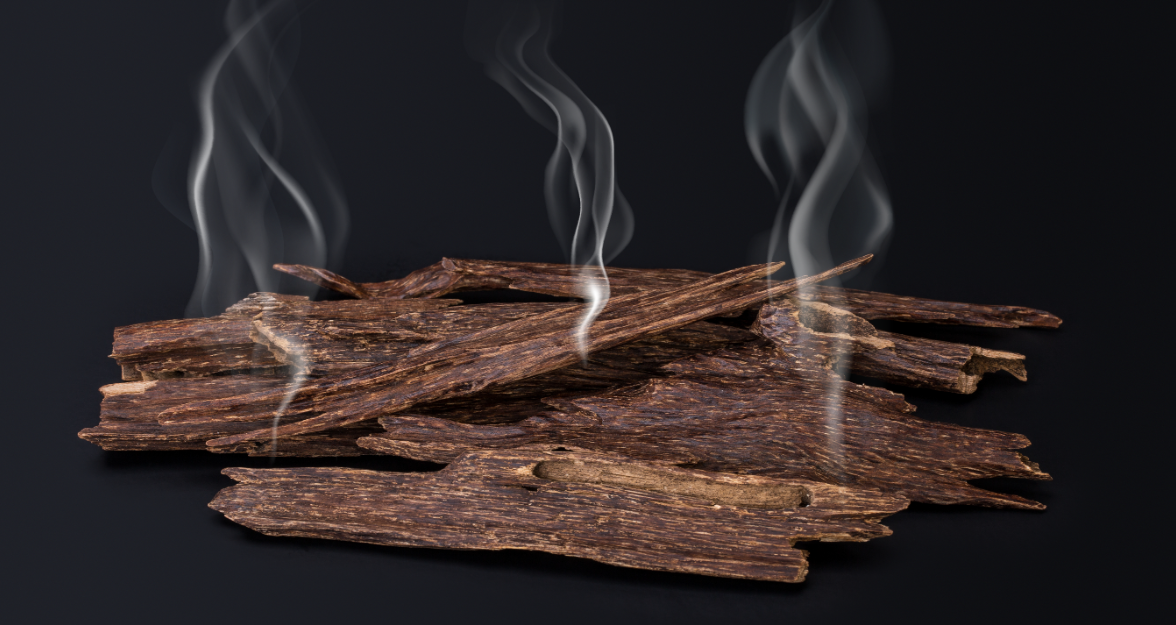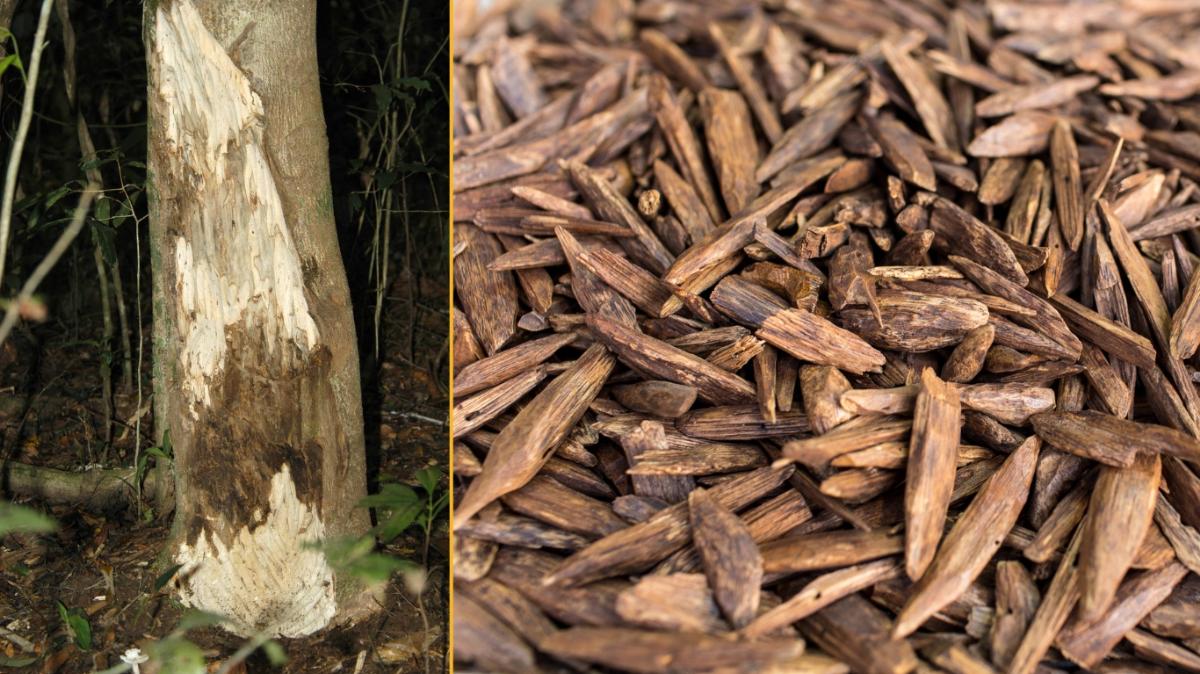Not-so-fragrant trading: demand for aromatic agarwood puts rare Philippines trees at risk
Increasing demand for ‘the wood of the gods’ could threaten the survival of wild Aquilaria trees in the Philippines, according to new research.
Incense, perfume, threatened trees? Illegal collection and trafficking of agarwood is on the rise due to international demand.
Agarwood or Oud is a highly sought-after aromatic resin derived from some Aquilaria tree species. With its unique fragrance and cultural significance, agarwood has been used for centuries in traditional medicine, perfumery, and religious ceremonies and is often referred to as 'the wood of the gods'.

Agarwood chips being burned to release their rich, fragrant aroma—a prized commodity in traditional perfumes and incense. ©Velveteye1 // Dreamstime.com
However, the persistent demand for agarwood has led to unsustainable harvesting practices and illegal trade, posing a severe threat to the survival of the Aquilaria trees in the wild. All Aquilaria species are listed on CITES* Appendix II since 2005, regulating international trade.
A new TRAFFIC study entitled 'The Online Agarwood Trade and Seizure Analysis in the Philippines', published in the Journal of Nature Studies, recorded more than 1,300 Facebook posts offering agarwood, Aquilaria seeds, and seedlings in the Philippine Facebook groups between June 2021 and February 2022.
Online traders appeared to have little regard for legality. The authors documented only 10 of the 135 online sellers that even mentioned having a local business registration and the relevant wildlife permits.
“It is all openly offered for sale online despite being illegal to harvest or trade in the country without permits from the wildlife authority. It is likely most do not have the necessary permits to trade legally,” said Emerson Sy, lead author of the paper.
Between 2018 and 2021, law enforcement authorities seized close to 330 kg of agarwood.
Over 100 people were involved in the poaching and trafficking of agarwood during this period. More than a third of the seizure incidents involved foreign nationals arrested with illegally acquired local wild agarwood on the islands of Samar, Leyte or Mindanao.
“Only a small portion of Aquilaria trees form the resin in the wild and even this can be difficult to detect, so the level of illegal harvesting is likely far higher than the agarwood trade figures indicate,” said the study co-author Ariana Melgar.

(left) This tree species, Aquilaria crassna, is a key source of agarwood (© Blaise Droz/wikimedia). Poachers scraped the bark of this tree, intending to harvest the valuable blackened wood as chips (right) for incense and perfume production (©Velveteye1/Dreamstime.com).
The study specifically highlights the natural forests of Leyte and Mindanao being used as a source of local wild agarwood.
Seizures continue to date with the most recent on 6 November, involving two parcels of agarwood weighing a total 5.7kg detected by Customs officers at Ninoy Aquino International Airport. The parcels were falsely labelled as ‘mahogany chips' and were destined for Dubai.
The authors also pointed to information from online agarwood trade groups where some traders enticed buyers with unverified claims that they possessed the required tree-cutting permit and authorization to sell from the Department of Environment and Natural Resources (DENR).
Authors also argued that cultivated agarwood was unlikely to lessen the demand and poaching of wild agarwood since its quality is generally viewed as inferior.
“The ongoing illegal collection of wild agarwood in the Philippines threatens the last remaining wild Aquilaria stands, especially in the Bicol Peninsula, Eastern Visayas, and Mindanao,” said Sy.
To address the illicit collection and trade, the authors recommend continuously monitoring and enforcing laws and regulations, including monitoring online platforms and adopting measures to ensure buyer and seller accountability.
The study also highlights the need to educate buyers on the ecological consequences of illegal agarwood trade and the importance of sustainable sourcing and responsible buying.
Notes:
*CITES: Convention on International Trade in Endangered Species of Wild Fauna and Flora is an international agreement between governments that aims to ensure that international trade in wild specimens does not threaten the survival of the species.



